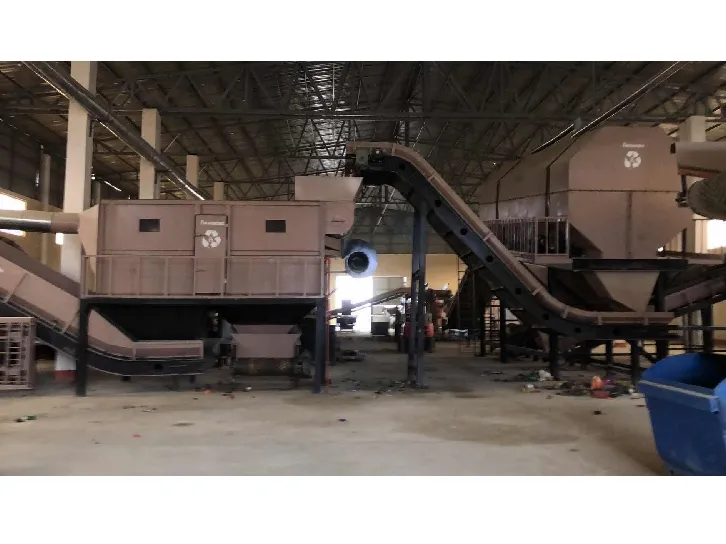

nov . 16, 2024 23:10 Back to list
Electronic Rubbish Collection A Necessary Step Towards Sustainable Living
In an era where technology advances at breathtaking speeds, the proliferation of electronic devices has become a defining characteristic of modern life. Smartphones, laptops, tablets, and countless other gadgets have become indispensable tools, enhancing our work efficiency and daily convenience. However, with these advancements comes an ever-growing problem electronic waste, commonly known as e-waste. The improper disposal of these devices presents significant environmental hazards, making the practice of electronic rubbish collection an essential element in striving for a sustainable future.
E-waste refers to discarded electronic appliances that are no longer wanted, have reached the end of their useful lives, or are obsolete due to advancements in technology. Estimates suggest that over 50 million tons of e-waste are generated globally each year, and this number is expected to rise as more people gain access to electronic devices. Laptops, desktop computers, smartphones, and even household appliances all contribute to this staggering figure, with many of these items ending up in landfills where they can pose serious environmental risks.
One of the key challenges with e-waste disposal is that electronic devices often contain hazardous materials, such as lead, mercury, cadmium, and brominated flame retardants. When disposed of improperly, these toxic substances can leach into the soil and water systems, leading to contamination and posing health risks to humans and wildlife alike. For instance, lead exposure can cause severe neurological damage and is particularly harmful to children. Thus, managing electronic rubbish through responsible collection and recycling is crucial to mitigating these risks.
Electronic rubbish collection programs aim to address the issue of e-waste by providing facilities and initiatives for proper disposal and recycling of electronic devices. Many local governments and organizations have launched collection events and drop-off centers specifically designed for e-waste. These programs facilitate the safe dismantling and recycling of electronic components, ensuring that valuable materials can be recovered and reused. For instance, metals such as gold, silver, and copper can be extracted from old circuit boards and reused in the production of new electronic devices, conserving natural resources and reducing the environmental footprint of manufacturing processes.

Moreover, educating the public about the importance of electronic rubbish collection is vital to improving participation in such programs
. Awareness campaigns can help people understand the consequences of improper e-waste disposal and promote the benefits of recycling. Schools, community centers, and local governments can collaborate to host workshops and informational sessions that empower individuals to make informed choices about their electronic devices. This education extends to teaching consumers how to extend the life of their gadgets through regular maintenance and software updates, ultimately reducing the volume of e-waste generated.Another crucial aspect of electronic rubbish collection is the role of manufacturers. Many tech companies are increasingly recognizing their responsibility in the lifecycle of their products. Some organizations have implemented take-back programs, allowing consumers to return their old devices to the manufacturer for proper recycling. By incorporating a circular economy model, manufacturers can minimize waste and encourage sustainable practices. Additionally, environmentally friendly design choices—like using recyclable materials or creating easily disassemblable products—can further reduce e-waste generation.
Governments also play a critical role in regulating e-waste management. Policies and regulations can impose stricter guidelines on electronic manufacturers regarding the recyclability of their products and the necessary steps for responsible disposal. Implementing extended producer responsibility (EPR) laws can require manufacturers to take back their products at the end of their life cycles, contributing to comprehensive e-waste management systems.
In conclusion, as the prevalence of electronic devices continues to grow, so does the importance of electronic rubbish collection. By establishing efficient collection programs, promoting public awareness, and encouraging responsible practices among manufacturers, society can significantly mitigate the hazards associated with e-waste. Together, these efforts pave the way for sustainable living, ensuring that future generations can enjoy the benefits of technology without compromising the health of our planet. The time to act is now—responsible electronic rubbish collection is not just an option; it is a necessity for a cleaner, greener future.
Latest news
Troubleshooting Common Eddy Separator Problems
NewsJul.04,2025
The Role of Metal Recycling Plants in Circular Economy
NewsJul.04,2025
The Impact of Recycling Line Pickers on Waste Management Costs
NewsJul.04,2025
Safety Features Every Metal Shredder Should Have
NewsJul.04,2025
How Industrial Shredders Improve Waste Management Systems
NewsJul.04,2025
How Cable Granulators Contribute to Sustainable Recycling
NewsJul.04,2025